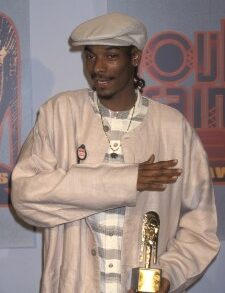
Gaining access to venture capital resources is one of the most challenging aspects of entrepreneurship. When aligned with it, it opens up a new world of opportunity and sustainability to ensure that one’s business has the foundation to thrive upon. Luckily, there are many organizations that are prioritizing a level playing field for marginalized business owners through venture capital.
Based in Silicon Valley, the Cultural Leadership Fund (CLF) is a venture capital entity that exclusively provides assistance and financial backing to Black cultural leaders and organizations that prioritize Black wealth generation. Megan Holston-Alexander—a partner at Andreessen Horowitz (a16z) and leader of the Cultural Leadership Fund (CLF)— spoke with EBONY about how venture capital can benefit the future of Black business owners in the tech industry and beyond.
EBONY: The impact of Black culture has impacted global society and business in many ways. In your opinion, why is Black culture important to recognize and uplift?
Megan Holston-Alexander: Black culture has been the blueprint for American and global culture for as long as I can remember. From playing a major role in the genesis of jazz, rock & roll, and hip-hop to creating the leading viral content on X, Instagram, and Tik-Tok to influences in fashion, movies and art, an understanding of the impact of Black culture has never been missing—but the credit to Black people has. What’s important to recognize and uplift is the people whose hard work, creativity, blood and sweat went into these forms of expression for others to enjoy. That includes verbal, commercial, and financial recognition.
When thinking about wealth generation in Black communities, there are still many misconceptions about how it can be done. In what ways does the Cultural Leadership Fund shed light specifically on wealth generation?
The Cultural Leadership Fund at Andreessen Horowitz focuses on two core ways of building Black generational wealth: connecting the world’s greatest cultural leaders to innovative new tech companies and getting more young African Americans into the technology industry. When we say cultural leaders, we mean the world’s greatest Black athletes, entertainers, musicians and C-Level executives who are excited about technology and want to play a role in the innovation happening across this industry. On the other hand, we know there are a number of folks who don’t have the capital to invest in a risky asset class like venture. So, how do we help them build wealth? Early employee-hood at growing tech companies. To achieve our second mission, we donate all of our management fees and carry to a set of nonprofits and initiatives that are specifically focused on getting more young African Americans into tech. We believe that if we can get more Black folks engaged at the early stage, their ability to grow alongside a company until a liquidity event, such as an IPO or acquisition, can unlock capital with which they can then go on to invest or build their own businesses.
What prompted the creation of the Black Digital Art Collective?
The Black Digital Art Collective (BDAC) is a decentralized autonomous organization focused on increasing Black artists and creators’ presence and influence in web3 while also educating the Black community on crypto and web3. It was really birthed from a historical place. Over the years as new technology waves emerge, Black creators, investors, and consumers are typically last in line to benefit economically from the technology. Through the BDAC, Black purveyors of art get to come together to support Black artists using web3 technology to purchase and collect their art. By doing this, the Black community has a say so in what is the most important digital art of the future AND the ability to help Black artists benefit from leaning into the technology early! It’s a win-win.
Why is it important for Black people to have increased visibility within the field of technology? What tips do you have for encouraging organizations to tap into pipelines of Black talent in order to achieve the aforementioned?
One thing we know for sure is that technology has been the greatest generator of wealth over the last 20 years—nothing else even comes close. Having access to and participating in this industry has the potential to change not only career trajectories because of its fast-growing nature but also to truly change lives from the sheer number of opportunities available to start or join these supercharged businesses. And most importantly, you don’t have to be technical to work in tech. That’s a myth! Tech companies need marketers, HR, sales, finance in addition to product, engineers and design. If you have expertise and a specific skill set, you can likely turn it into a tech career.
In terms of tapping into Black talent, there are a number of great organizations, such as the Black in Gaming Foundation, Black Product Managers, Black Women in Blockchain, Hidden Genius Project, and Per Scholas that the Cultural Leadership Fund supports that provide training and preparation for Black talent to break into tech.
This post was originally published on this site be sure to check out more of their content.








